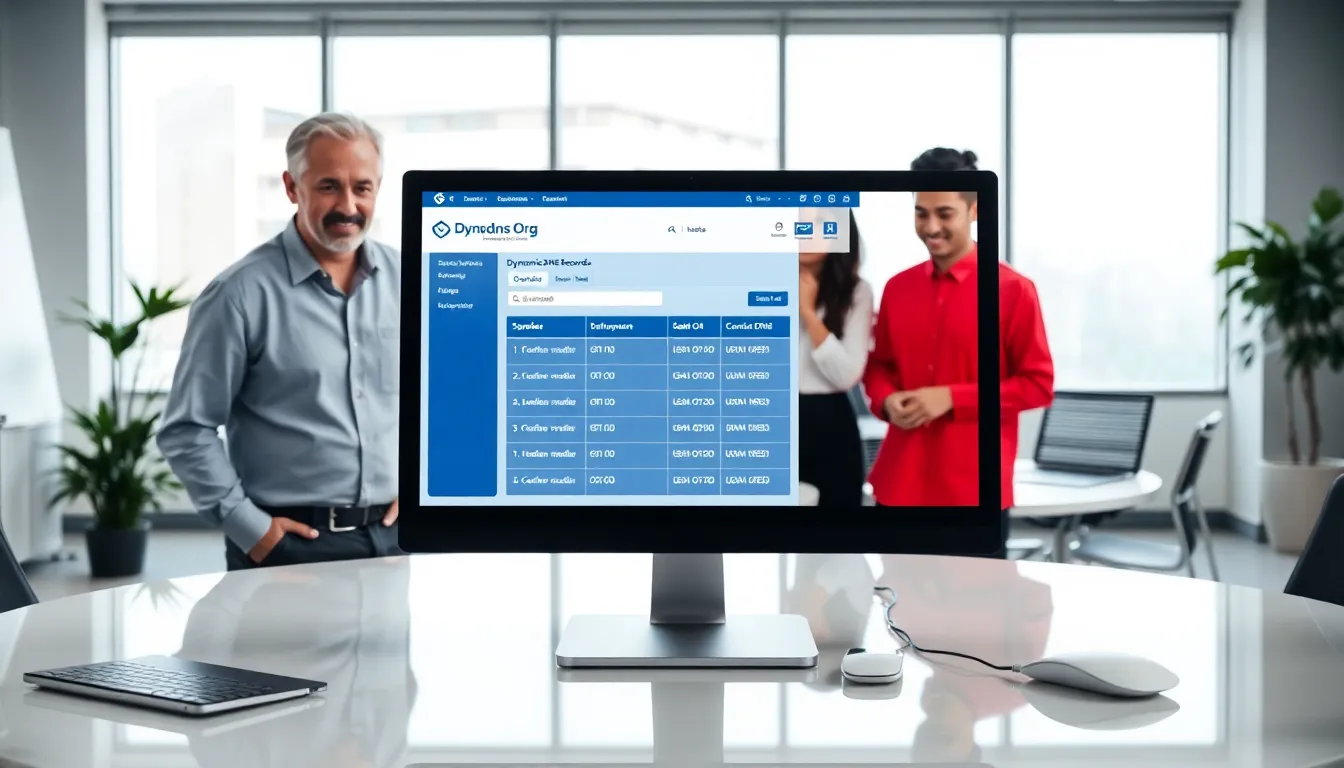In the vast sea of the internet, where domains come and go faster than a cat meme goes viral, Mysk2 Dyndns Org emerges as a lifebuoy for many. If you’ve found yourself tangled in the web of dynamic DNS and HTML jargon, fear not. This guide dives deep into the essentials of Mysk2 Dyndns Org and its HTML framework, offering clarity and insight with just a sprinkle of humor. Buckle up as we explore how this platform can transform your online presence smoothly and efficiently.
Mysk2 Dyndns Org 3 html

Mysk2 Dyndns Org is a dynamic DNS service that bridges the gap between a user’s ever-changing IP address and their need for a consistent online presence. This service is particularly crucial for those utilizing residential networks or working remotely. Think of it as a clever postman ensuring your online messages find their way to you, no matter where your address shifts.
The platform offers a simple interface that allows users to create and manage their own dynamic DNS records without the intricacies common to traditional DNS management. As a service that prioritizes user-friendliness and efficiency, Mysk2 Dyndns Org plays a vital role in modern networking.
Key Features of Mysk2 Dyndns Org
Mysk2 Dyndns Org comes packed with essential features that cater to both novices and seasoned users. Here are some standout highlights:
- Real-Time Updates: One of the most significant perks is its ability to update DNS entries in real-time. As the user’s IP address changes, Mysk2 ensures that the DNS record is updated without delays.
- User-Friendly Interface: The platform is designed for ease of use. Even the least tech-savvy individual can navigate through setting it up without accidentally launching a rocket.
- Customizable Subdomains: Users can create personalized subdomains, allowing for extensive customization. This feature is perfect for those who want to craft a unique identity online.
- Robust Security: Mysk2 places a high priority on security. With TLS support, users can rest easy knowing their data is protected during transmission.
- Dynamic DNS Client Support: Mysk2 is compatible with various dynamic DNS clients, enabling flexibility in managing connections across devices. This ensures that whether you’re on a home network or mobile data, you stay connected.
Understanding the HTML Structure
To fully grasp Mysk2 Dyndns Org, one must understand the underlying HTML structure that supports its functionality. HTML, or HyperText Markup Language, serves as the backbone of webpage construction, and Mysk2 utilizes it adeptly.
The HTML structure comprises elements such as tags, attributes, and elements that together ensure the site functions smoothly. Notably, Mysk2 incorporates:
- Head Tags: These include metadata, title information, and link tags, serving as the foundation upon which other elements are built.
- Body Structure: Within the body tag, you’ll find content organized in a way that’s both semantic and logical. Header tags provide hierarchy, while division tags separate sections for better readability.
- Integration with CSS: While HTML builds the structure, CSS (Cascading Style Sheets) enables customization, allowing the interface to be visually appealing and intuitive. This combination ensures that users not only find functionality but also enjoy a pleasant user experience.
How to Set Up Mysk2 Dyndns Org 3 HTML
Setting up Mysk2 Dyndns Org 3 HTML might sound daunting, but it’s quite straightforward. Follow these simple steps:
- Create an Account: Start by visiting the Mysk2 website and creating an account. This will be your gateway to all features.
- Choose Your Domain: Once logged in, select a domain name. You can choose from existing options or create a new one tailored to your needs.
- Configure Your DNS Settings: Navigate to the DNS settings section. Here, you’ll set up your dynamic DNS, ensuring it aligns with your current IP address.
- Set Up HTML Records: If you’re familiar with HTML, you can configure your records to make your website responsive. Otherwise, Mysk2 provides templates that simplify this process.
- Deploy Your Setup: After configuration, test your setup to ensure it’s operational. Check that the DNS updates are functioning correctly by pinging the domain or checking DNS resolution.
- Monitor and Adjust: Finally, keep an eye on the dynamic updates. Mysk2 makes this easy with settings that allow you to adjust your configurations as needed.
Common Issues and Troubleshooting Tips
While Mysk2 Dyndns Org is fairly reliable, users can sometimes encounter issues. Here are some common problems and their solutions:
- DNS Update Failure: If you find that your DNS isn’t updating, ensure that your dynamic DNS client is correctly configured. Restarting the client often resolves this issue.
- Connection Problems: Check your network connection. Sometimes, the problem lies with local settings rather than Mysk2.
- HTML Errors: In case your HTML configuration throws errors, use validator tools available online to rectify potential syntax errors.
- Support Resources: When in doubt, don’t hesitate to reach out to Mysk2’s support team. They provide valuable resources and quick responses that can alleviate most concerns.
Future of Mysk2 Dyndns Org and HTML Integration
The future of Mysk2 Dyndns Org appears promising, particularly in the ever-evolving landscape of web technologies. As the reliance on dynamic IP addressing increases with the rise of IoT devices, Mysk2 is poised to adapt and expand its services.
Trends in web development suggest a stronger integration of HTML with dynamic DNS services. Mysk2 could potentially offer enhanced features such as AI-driven DNS management, where algorithms predict and manage IP changes automatically.
Also, user engagement may increase through interactive HTML components, making the platform not just a service but a dynamic ecosystem for users to interact with. This foresight aligns with the growing demand for seamless internet experiences.



